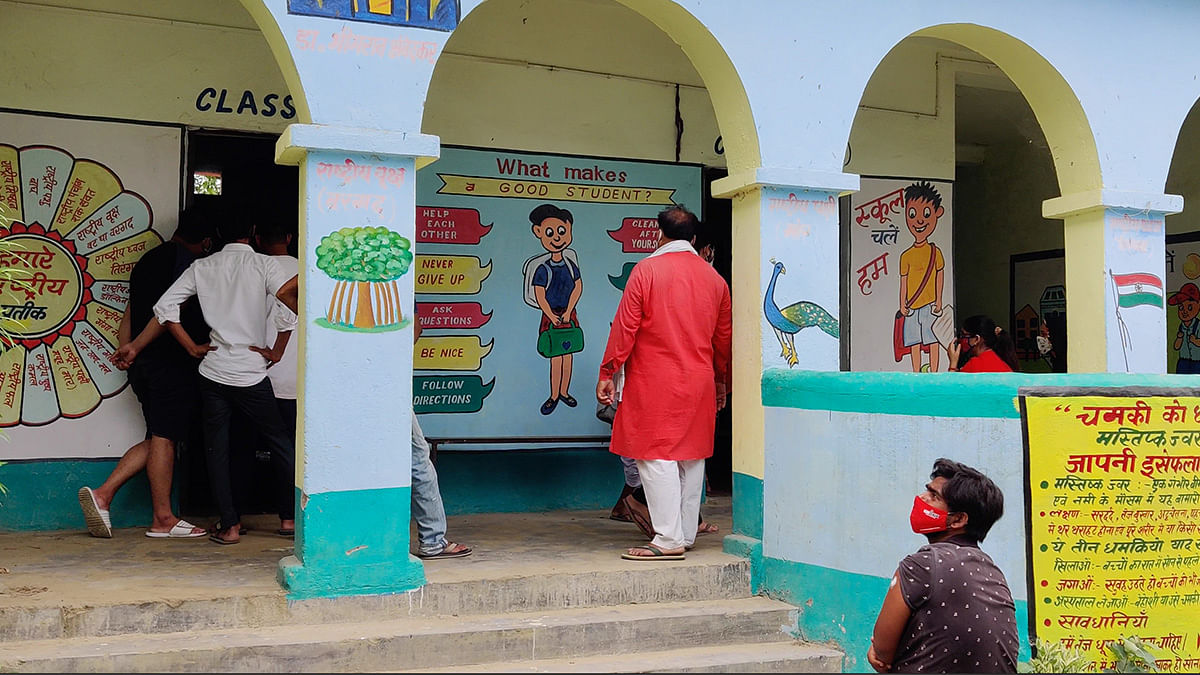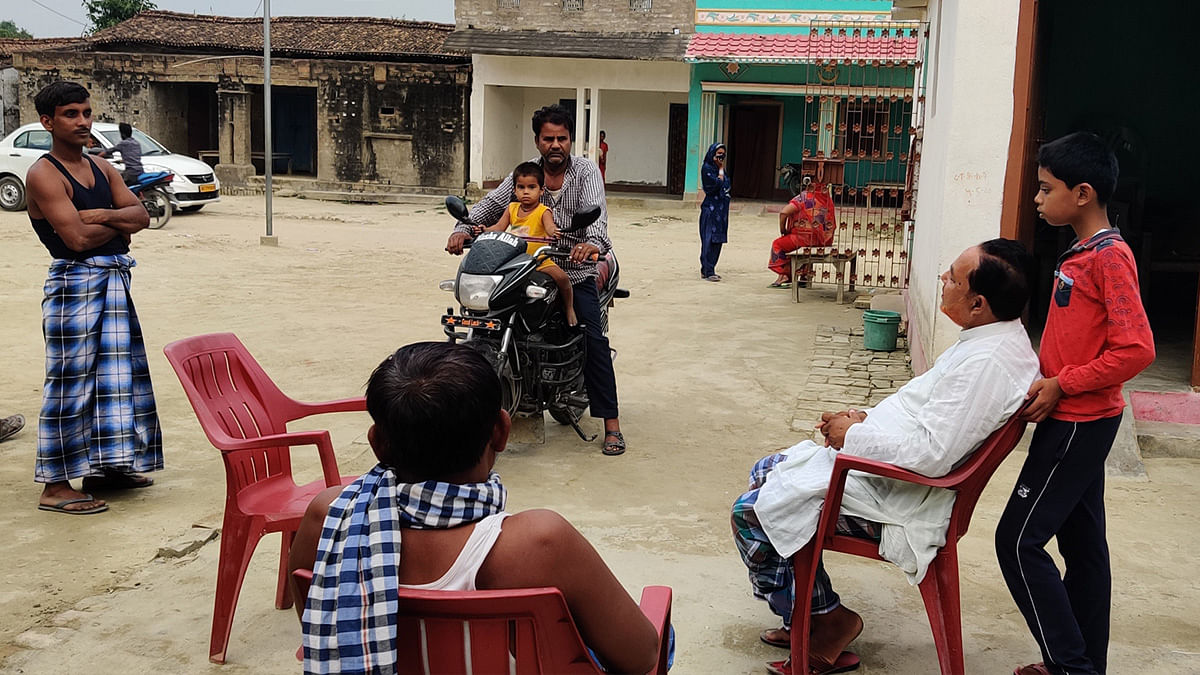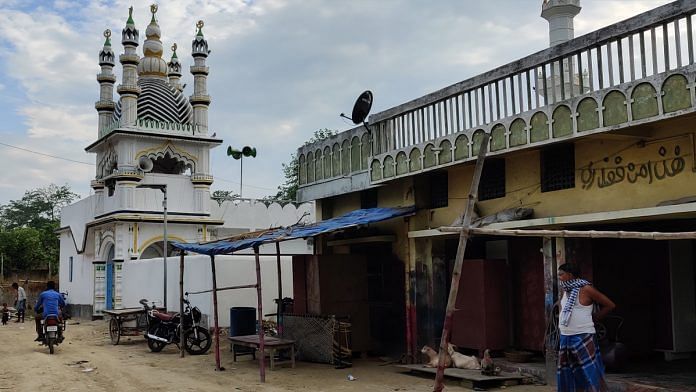Muzaffarpur: Muslims in many Bihar villages are reluctant to get vaccinated, with their hesitancy having little to do with faith as the Jamaat-e-Islami Hind (JIH) and other Islamic religious scholars have already backed the Covid-19 vaccination drive.
Instead, deep-rooted insecurities, ill-conceived apprehensions, a distrust of the Modi government and a lack of information have all meant that fewer Muslims are getting the vaccine in the northern state.
When ThePrint visited a vaccination drive, for everybody above 18 years of age, at Sharfuddinpur village in Bihar’s Muzaffarpur district on 18 May, not a single Muslim showed up throughout the day.
Bimla Devi, 49, an AASHA (Accredited Social Health Activist) worker who has been administering Covid-19 vaccines in rural Bihar since 15 April, told ThePrint that while vaccine hesitancy was a general problem, it was more predominant in the Muslim community.
“There are a lot of rumours but the vaccine being an sterilising agent is one of them making the rounds in the Muslim community,” Bimla said.
It was no different at the block level in the district.
At the Paras Nath Middle School in Bochahan — the main vaccination centre for Bochahan block, under which Sharfuddinpur falls — almost 400 shots are administered on a daily basis.
According to officials there, “just 4-6 people from the Muslim community come for vaccination”. In all, the officials said, only 30-40 Muslims have got their vaccine in the last week at the centre. According to the 2011 census, Muslims account for 15.53 per cent of Muzaffarpur district’s population.
Bijay Kumar, block monitory and evaluation assistant at Bochahan block, said there is “enormous misinformation” among the Muslim community of the block.
“We get to hear rumours like vaccines sterilise people or that it’s Modi’s ploy to control the Muslim population,” he said, however, adding that “educated Muslims have come forward and got vaccinated”.
The vaccination drive began in Bihar on 16 January, like in the rest of the country, and as of 20 May, state health department data states that 75,82,363 people have got the first jab while 19,15,440 have got both.

Rumours among Muslim community
ThePrint visited Masjid Tok locality of Sharfuddinpur village, which is home to 80-100 Muslim households, and did not find a single person who got either of the vaccine shots.
Mohammad Imtiyaz, 24, of the Masjid Tok locality, believes rumours have played a major part in the reluctance to get the vaccine.
“Getting scared is normal after we hear stories from other villages of people dying after taking their first shots,” he claimed. ThePrint couldn’t verify such claims.
The vaccine hesitancy is also driven by what some here termed as the “BJP’s anti-Muslim policies”.
“We can’t ignore the Citizenship Amendment Act, National Register of Citizens, Ram temple etc,” said a villager in the Masjid Tok locality. “So it’s clearly a wicked ploy to reduce our population in the garb of vaccinations.”
At Mirzapur, another Muslim-dominated locality in Sharfuddinpur, residents share similar fears as those of Masjid Tok.
Mohammad Hisham, who came back from Mumbai in early April, said the reluctance could be due to the fact that there was not a “single Covid-19 case in Mirzapur village”.
“There are a lot of cases in our neighbouring villages but somehow we managed to stay out of it. It’s God’s grace,” Hisham said.
A teacher in Mirzapur, Abdul Qayoom, said the primary reason for vaccine hesitancy was illiteracy and the next one was the continuous “dehumanisation” of Muslims in the media.
“Almost 95 per cent of Mirzapur is illiterate,” Qayoom said. “So even when one person tries to reason about vaccines being a rational defence against Covid-19, 10 people pounce on him with rumours.”
When asked if he had gotten the vaccine, he said, “I have registered on the CoWin app and am now waiting for my turn.”

Muslims in urban Muzaffarpur share similar views
Muslims in urban Muzaffarpur appear to share the same opinions about the vaccine as those of rural areas.
In Qureshi Mohalla of Muzaffarpur, people credit their “strong immune system” for not getting Covid-19 infection.
Farhad, 51, a butcher by profession, said there hasn’t been any Covid-19 case in Qureshi Mohalla during the second wave.
“If we talk about this part of Muzaffarpur, it’s Covid free,” he said. “Just across the road, Dheragaon has registered four deaths due to Covid.”
Health officials posted at Muzaffarpur’s Shrikrishna Medical College and Hospital, however, said a majority of Muslims in government jobs have come forward and got vaccinated.
“The educated class in the community has come and got vaccine jabs but a majority don’t trust it,” an official said.
Also read: ‘Dead body could infect us, wood is expensive’ — tragic stories of Covid victims in Ganga
The need to fight misinformation
A senior health expert at Muzaffarpur told ThePrint that there is a dire need to launch concerted information campaigns in Muslims areas.
“We should take help from religious scholars, preachers and others so that they can convince people to get vaccinated,” the expert said.
In Sharfuddinpur village, however, the administration is making announcements regularly to convince people about the vaccines.
Sambhod Chaudhary, the Sharfuddinpur village sarpanch told ThePrint, “We run vaccine announcement vans while our AASHA and ANM workers also talk to the families about vaccination.”
(Edited by Arun Prashanth)
Also read: When ‘hell’ came floating on Ganga — Bihar village in shock after 71 bodies wash ashore



